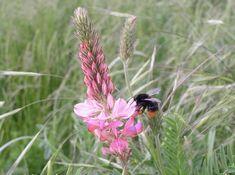
Sainsbury’s is throwing its weight behind a recent drive to bring back the humble bumblebee, with a new project aimed at encouraging UK farmers to gear their sites up for biodiversity.
Known as Operation Bumblebee the project has been launched in conjunction with seed crop protection specialist Syngenta, following scientific research that shows the 30-odd year decline in bees can be reversed by implementing simple measures.
The aim of the project is to boost bumblebee populations by as much as 600 per cent over the next three years by training farmers to manage field margins and plant a selection of plants and flowers that are rich in pollen and nectar.
Sainsbury’s has urged 90 per cent - some 300 - of its vegetable and potato growers to sign up to the initiative following Syngenta’s success in working with 200 UK wide growers.
Geoff Coates, of Syngenta, has been training farmers since the move to promote bee multiplication was introduced last year.
He said: “The number of bumblebees has declined so dramatically over the last 30-40 years because we have changed our farm land from a mix of grassland, cereals and horticultural product, such as veg, to a much more intensive method of farming, particularly of arable crops. Now we are being asked to keep farming but to put back some of the biodiversity.”
According to Coates the recent activity was borne out of the results of Buzz, a scientific study carried out by researchers at the Centre for Ecology and Hydrology, which showed bumblebee and other wildlife could be reintroduced by recreating the kind of habitats they need to thrive in.
George Reid, a potato grower for Sainsbury’s said: “We are really excited about this project, in the last week we have sown a number of new areas between our fields. We will continue to do this until the first week in September - and we look forward to seeing many more bumblebees at work in our fields by this time next year.”
Debbie Winstanley, Sainsbury’s vegetable product technologist and appointed bumblebee ambassador, added: “Sainsbury’s customers care about the environment in which their food is grown, and at a very small cost this project demonstrates how sustainable, profitable food production and a vibrant countryside can sit side by side.”
According to Coates, the project is guaranteed to benefit all involved.
Not only will it help to restore the number of bees so integral to the natural environment but it also rewards participants with 450 points towards their Agri-Environment Entry and Higher Level Stewardships, he said.



